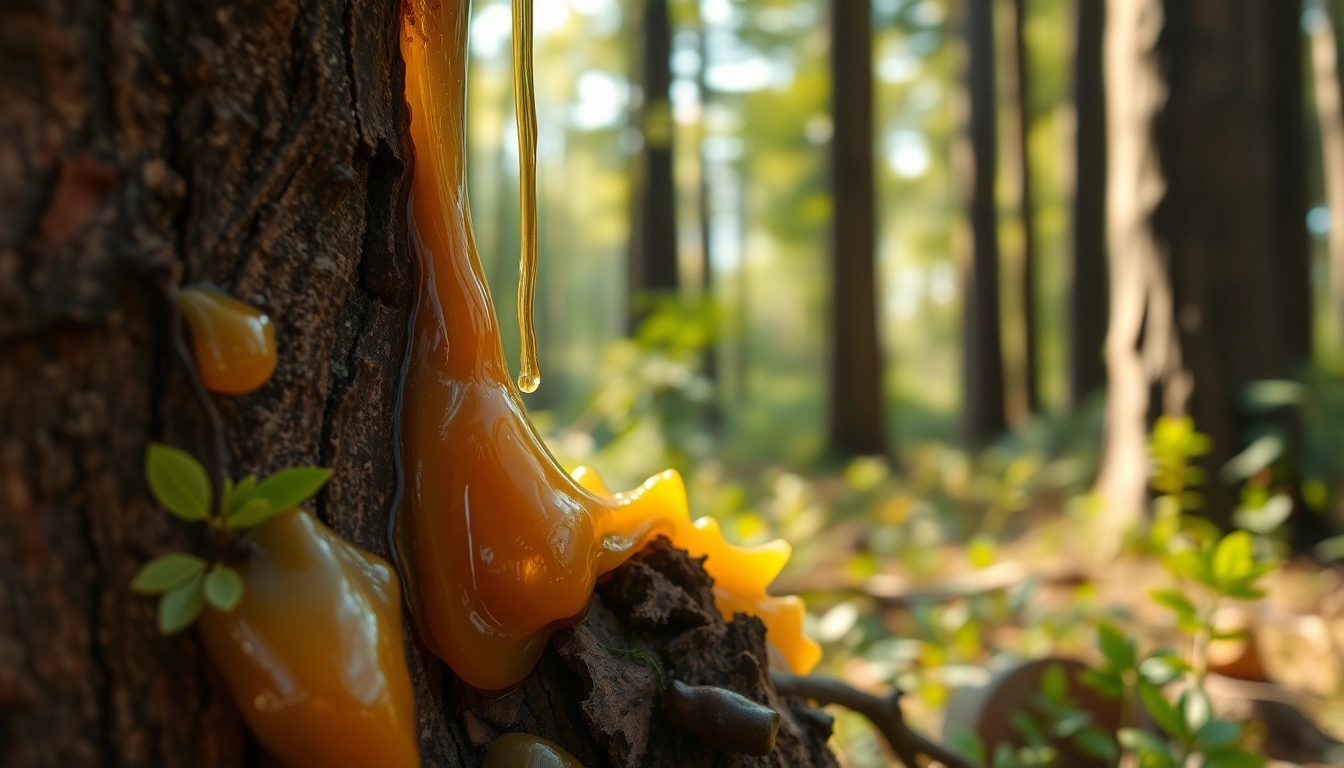
What is Benjoin? An Overview
Benjoin, also known as benzoin or gum benzoin, is a balsamic resin obtained from the bark of several species of trees in the genus Styrax. This versatile resin has garnered a place in the hearts of many due to its unique aromatic profile and its rich historical significance. Used in perfumes, incense, flavorings, and traditional medicine, benjoin continues to captivate artisans and healers alike.
The Source of Benjoin: Styrax Trees
Benjoin is sourced from the bark of certain Styrax species, notably Styrax benzoin and Styrax tonkinensis. These trees predominantly grow in Southeast Asia, particularly in Indonesia and Thailand. The resin is harvested by making incisions in the bark, allowing the sap to ooze out and harden into lumps known as benjoin tears. The quality and characteristics of benjoin can vary depending on the specific tree species and the harvesting methods employed.
Physical Properties of Benzoin Resin
Benzoin resin is typically yellowish-brown or reddish-brown and has a somewhat brittle texture. When broken, it releases a warm, sweet, and slightly vanilla-like aroma. Its chemical composition includes various aromatic compounds such as benzoic acid and cinnamic acid, which contribute to its scent and therapeutic properties. Due to its nature, benjoin is often used in both solid and liquid forms, making it suitable for a wide range of applications.
Historical Uses of Benjoin
The use of benjoin dates back centuries. Historically, it has been employed in religious ceremonies, often burned as incense in temples and during rituals to purify the air and create a sacred atmosphere. In traditional medicine, particularly within Ayurvedic and Unani systems, benzoin has been used to treat respiratory ailments and skin conditions. Its rich history is a testament to its value across various cultures, and it remains an important element in modern aromatherapy.
The Aromatic Qualities of Benjoin
Benjoin is celebrated for its captivating and complex fragrance profile. It presents a warm, balsamic scent that is both soothing and grounding, making it a popular choice in perfumery and aromatherapy. Let’s delve deeper into what defines the aromatic qualities of benjoin.
Fragrance Profile of Benjoin
The scent of benjoin is often described as sweet, warm, and resinous. It carries notes of vanilla, with hints of clove and subtle smokiness. This multifaceted profile enables it to blend harmoniously with other fragrances, enhancing their overall character. Benjoin’s fragrance is not simply a standalone scent but a supportive note that enriches the olfactory landscape in various products.
How Benjoin is Used in Perfumery
In the world of perfumery, benjoin serves multiple purposes. It acts as a fixative, helping to stabilize and prolong the scents of other volatile ingredients. Additionally, its sweet and vanilla-like aroma can soften sharper notes in compositions, making it a favorite among perfumers. From luxury perfumes to artisanal blends, benjoin’s presence can bring depth and warmth to the fragrance.
Comparing Benjoin with Other Resins
While benjoin is a beloved resin, it exists alongside several others like frankincense and myrrh. Each resin has distinct characteristics; for example, frankincense offers a lighter, more citrusy aroma, while myrrh tends toward an earthier scent. The choice between these resins often depends on the desired fragrance profile and the intended use, whether in aromatherapy, incense, or perfumery.
Health Benefits of Benjoin
Beyond its aromatic allure, benjoin is recognized for its potential health benefits. It has been used in traditional medicine for generations, praised for various therapeutic properties. Below, we explore the health implications of using benjoin.
Medicinal Uses of Benzoin
Research indicates that benzoin possesses anti-inflammatory and antimicrobial properties, making it beneficial for treating respiratory conditions like coughs or congestion. It is often combined with other herbal remedies to enhance its effectiveness. People have historically used benzoin tinctures to soothe throat irritation and as a remedy for respiratory ailments.
Topical Applications and Effects
Topically, benjoin is applied to the skin to assist in healing wounds and soothing conditions such as eczema or psoriasis. Its antiseptic qualities can reduce the risk of infection in minor cuts and abrasions. Moreover, it is sometimes used in balms and ointments, providing both protection and hydration to the skin.
Potential Side Effects and Precautions
While benjoin is considered safe for most people when used appropriately, some individuals may experience allergic reactions or skin sensitivities. It’s advisable to conduct a patch test before applying it to larger skin areas or using it in cooking. Pregnant women and people with certain health conditions should consult a healthcare professional before using benzoin in any form.
Incorporating Benjoin in Daily Life
Integrating benjoin into everyday practices can enhance both your physical and sensory environment. From home ambience to self-care routines, here are some effective methods of incorporating this resin into daily life.
Using Benjoin in Candles and Incense
Benjoin is a popular choice for creating scented candles and incense sticks. The resin’s warm and comforting scent can transform a space into a tranquil retreat, perfect for relaxation or meditation. When selecting benjoin incense, look for high-quality products that emphasize natural ingredients to ensure a true representation of this resin’s rich aroma.
Crafting with Benzoin: DIY Projects
For the creative spirit, crafting with benjoin can yield unique and rewarding results. Adding benjoin to homemade lotions, creams, or oil blends can infuse your creations with beneficial properties and a delightful scent. When formulating your products, start with small quantities, adjusting the amount of resin to find the perfect balance for your desired fragrance strength.
Cooking with Benjoin: Flavor Enhancements
While primarily recognized for its aromatic and medicinal qualities, some culinary traditions incorporate benjoin as a flavoring agent. Its sweet, balsamic flavor can enhance desserts and exotic dishes. However, it’s crucial to use food-grade benzoin and to research proper usage amounts, ensuring safety in culinary applications.
Buying and Storing Benjoin
Acquiring quality benjoin requires careful consideration to ensure you’re purchasing high-grade resin. Knowing where to look and how to store it can extend its shelf-life and maintain its properties.
Where to Purchase High-Quality Benjoin
Benjoin can be found in specialty shops that focus on herbal remedies, aromatherapy products, or natural cosmetics. Online marketplaces also offer a wide range of options; however, prioritize vendors that provide clear information about the source and quality of their products. Reading user reviews can be beneficial for assessing product authenticity.
Storing Benjoin for Optimal Freshness
To maintain the freshness of your benjoin, store it in a cool, dry place away from direct sunlight. Glass jars or tightly sealed containers are ideal for preserving its aromatic qualities. Proper storage will extend the resin’s shelf life and ensure that you enjoy its benefits for years to come.
Signs of Quality in Benzoin Resin
When evaluating the quality of benjoin, look for resin that is well-formed with a rich color and robust aroma. High-quality benzoin should not have an overly palatable or synthetic scent. Additionally, it should break easily, producing a clean snap rather than crumbling excessively. If purchasing powdered benzoin, ensure it is finely milled and free from any additives or fillers.







